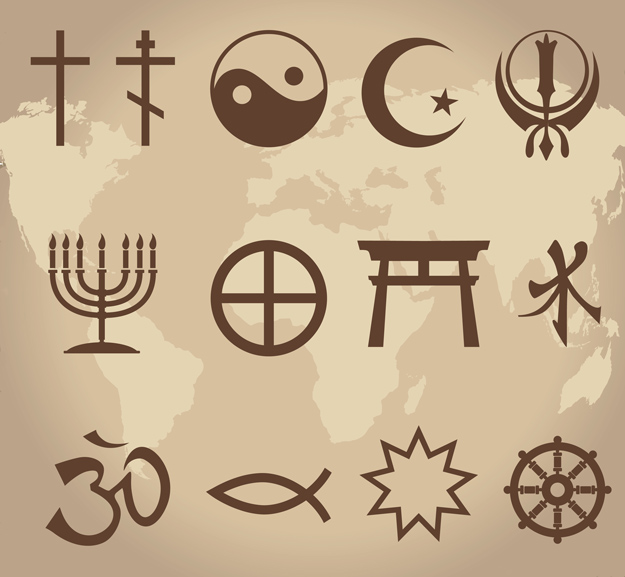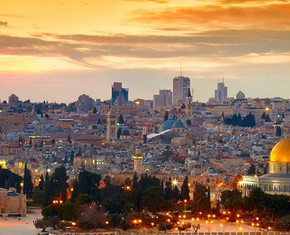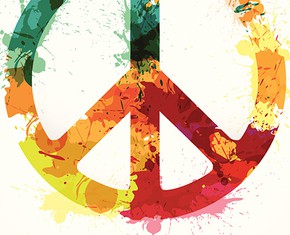The views expressed in our content reflect individual perspectives and do not represent the authoritative views of the Baha'i Faith.
…we must endeavor to promulgate and practice the religion of God which has been founded by all the Prophets. And the religion of God is absolute love and unity. – Abdu’l-Baha, The Promulgation of Universal Peace, p. 31.
 The Baha’i teachings have a unique, unifying view of the entire concept of religion.
The Baha’i teachings have a unique, unifying view of the entire concept of religion.
Rather than a competing welter of different, divergent beliefs, Baha’u’llah taught that all religion comes from the same source, and pursues the same essential purpose. Religion, according to the Baha’i teachings, comprises a single system of divine educators, all linked by the oneness of their principles, the common spiritual core of their messages, and the love of God for humanity. The essentials of that single divine religion represent one underlying reality, indivisible and not multiple. Only man-made differences separate the world’s great Faiths, causing them to seem conflicted and opposed to one another. In truth, the Baha’i writings say:
…the religion of God is one, and it is the educator of humankind, but still, it needs must be made new. When thou dost plant a tree, its height increaseth day by day. It putteth forth blossoms and leaves and luscious fruits. But after a long time, it doth grow old, yielding no fruitage any more. Then doth the Husbandman of Truth take up the seed from that same tree, and plant it in a pure soil; and lo, there standeth the first tree, even as it was before.
Note thou carefully that in this world of being, all things must ever be made new. Look at the material world about thee, see how it hath now been renewed. The thoughts have changed, the ways of life have been revised, the sciences and arts show a new vigour, discoveries and inventions are new, perceptions are new. How then could such a vital power as religion — the guarantor of mankind’s great advances, the very means of attaining everlasting life, the fosterer of infinite excellence, the light of both worlds — not be made new? This would be incompatible with the grace and loving-kindness of the Lord.
Religion, moreover, is not a series of beliefs, a set of customs; religion is the teachings of the Lord God, teachings which constitute the very life of humankind, which urge high thoughts upon the mind, refine the character, and lay the groundwork for man’s everlasting honour. – Abdu’l-Baha, Selections from the Writings of Abdu’l-Baha, p. 52.
Baha’is firmly believe that the oneness of humanity and the unity of all religions go hand-in-hand:
Inasmuch as the essential reality of the religions is one and their seeming variance and plurality is adherence to forms and imitations which have arisen, it is evident that these causes of difference and divergence must be abandoned in order that the underlying reality may unite mankind in its enlightenment and upbuilding. All who hold fast to the one reality will be in agreement and unity. Then shall the religions summon people to the oneness of the world of humanity and to universal justice; then will they proclaim equality of rights and exhort men to virtue and to faith in the loving mercy of God. The underlying foundation of the religions is one; there is no intrinsic difference between them. Therefore, if the essential and fundamental ordinances of the religions be observed, peace and unity will dawn, and all the differences of sects and denominations will disappear. – Abdu’l-Baha, The Promulgation of Universal Peace, p. 98.
When we begin to see religion as a single school with many teachers, it changes the way we look at the entire idea of faith and its founders:
…the independent Prophets are founders; They establish a new religion and make new creatures of men; They change the general morals, promote new customs and rules, renew the cycle and the Law. Their appearance is like the season of spring, which arrays all earthly beings in a new garment, and gives them a new life. – Abdu’l-Baha, Some Answered Questions, p. 164.
This innovative point of view makes it possible to understand religion as a dynamic, living process rather than a conflicted set of dogmatic, unchanging authoritarian hierarchies:
All things are subject to re-formation. This is a century of life and renewal. Sciences and arts, industry and invention have been reformed. Law and ethics have been reconstituted, reorganized. The world of thought has been regenerated. Sciences of former ages and philosophies of the past are useless today. Present exigencies demand new methods of solution; world problems are without precedent. Old ideas and modes of thought are fast becoming obsolete. Ancient laws and archaic ethical systems will not meet the requirements of modern conditions, for this is clearly the century of a new life, the century of the revelation of the reality and therefore the greatest of all centuries. Consider how the scientific developments of fifty years have surpassed and eclipsed the knowledge and achievements of all the former ages combined. Would the announcements and theories of ancient astronomers explain our present knowledge of the sun-worlds and planetary systems? Would the mask of obscurity which beclouded mediaeval centuries meet the demand for clear-eyed vision and understanding which characterizes the world today? In view of this, shall blind imitations of ancestral forms and theological interpretations continue to guide and control the religious life and spiritual development of humanity today? Shall man gifted with the power of reason unthinkingly follow and adhere to dogma, creeds and hereditary beliefs which will not bear the analysis of reason in this century of effulgent reality? Unquestionably this will not satisfy men of science, for when they find premise or conclusion contrary to present standards of proof and without real foundation, they reject that which has been formerly accepted as standard and correct and move forward from new foundations. – Abdu’l-Baha, Foundations of World Unity, p. 82.
From this perspective, we can see the core commonalities of every belief system. From this perspective, we can understand why religion seems conflicted, and why, in its essence, all religion is one and the same.
















Comments
Sign in or create an account
Continue with Googleor